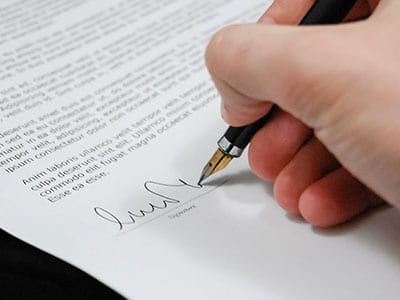This post is also available in:
繁體中文 (Chinese (Traditional))
简体中文 (Chinese (Simplified))
Business Record Keeping in Hong Kong – Why It Is Important for Your Company?

Your business record keeping should be kept for at least seven years from the date of the transaction conducted. Not keeping proper records is considered an offence in Hong Kong, and this includes if the business records are inadequate. It is also important to maintain proper records for your business because:
- It gives you greater overall control of your business
- Accurate records help better manage your financial planning and decision making
- It provides your business with a more professional image, which makes dealing with banks much easier
- It enables you to file accurate tax returns
- The audit and compliance costs incurred by your company are much less if all the records are readily available.
- It makes it easier to detect theft and loss in your business
Keeping and maintaining proper business records in Hong Kong will enable the transaction you conducted to be easily traced and verified through your accounting system from start to finish. This saves you a lot of time in the long run. If you are just starting a business in Hong Kong, or already running an existing business, improve the efficiency of your business record keeping by:
- Consistently looking for ways to improve the bookkeeping process
- Avoid doing record keeping and maintenance at the last minute
- Make bookkeeping a regular part of your business routine
- Keep books up to date
- Keep your records in an organized manner, making it easier for you to access the information you need quickly.
How to Keep Accounting Records for Your Hong Kong Business
The Inland Revenue Ordinance (Section 51C) requires that each company in Hong Kong must have sufficient and proper records kept. These records can either be in English, or in Chinese. The records must be of the company’s income and expenditure, and the records must be as precise and as detailed as possible to ensure that profits can be assessed readily.
If a company fails to comply and maintain proper accounting records requirements set by the Ordinance, they can be fined up to a maximum of HKD100,000.
Records can be kept in the following methods:
- Paper based method
- The computer method
What Records Need to Be Kept for Accounting Purposes?
The Inland Revenue Ordinance requires that a company in Hong Kong keep records of the following documents:
- Vouchers
- Invoices
- Receipts
- Bank statements
- Accounting books recording receipts and payments
- Accounting books recording income and expenditure
- Records of any assets and liabilities of a person related to that trade, profession or business. Examples of this could be any invoices which have been received, or receipts obtained for any payments made, and contract of purchase and sales.
- Records of where the trade, profession or business involves the provision of services (a complete record of all services must be provided in sufficient detail; records must be properly kept and prepared).
- Records of all entries from the daily sum of any money received and expended which is related to the trade, profession or business.
- Maintain records relating to sales and purchases, including full details of all the goods purchased and sold. The invoices must show the transaction of goods, buyer and seller details.
- Any statements of trading stock which are held by the person at the end of the accounting period. All records of stock takings from which any statement of trading stock has been prepared must also be properly recorded and maintained.
These records are not a requirement when you enclose your company’s Profits Tax return, however, the Inland Revenue Department has the authority to request for the documents listed above if they consider it necessary. To be safe, a business should generate written records of every single business transaction conducted with sufficient details provided.
To confirm your business calculations, your records must include the following:
- List of debtors and creditors
- Stock take figures
- Underlying documentation to verify the entries in the books of accounts
- Quantities and values of the goods
- Identities of the sellers and buyers
You would also need to keep records of your bank accounts. It is high recommended that you maintain separate business and personal bank accounts. The following records which relate to your business bank account should be kept:
- Bank statements
- Deposit receipts
- Cheque butts dealing
- Details of goods and services purchased
- Date of payment
- Name of payee
- Amount of the cheque
- Details regarding whether the expenses were for business or personal matters



